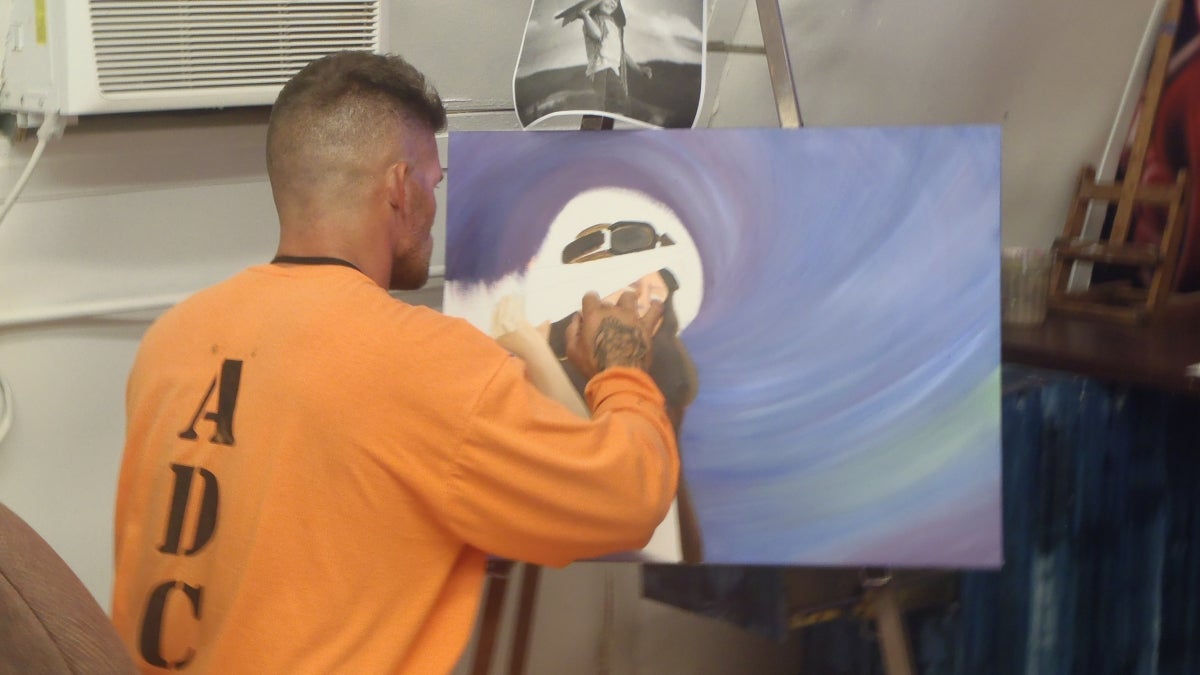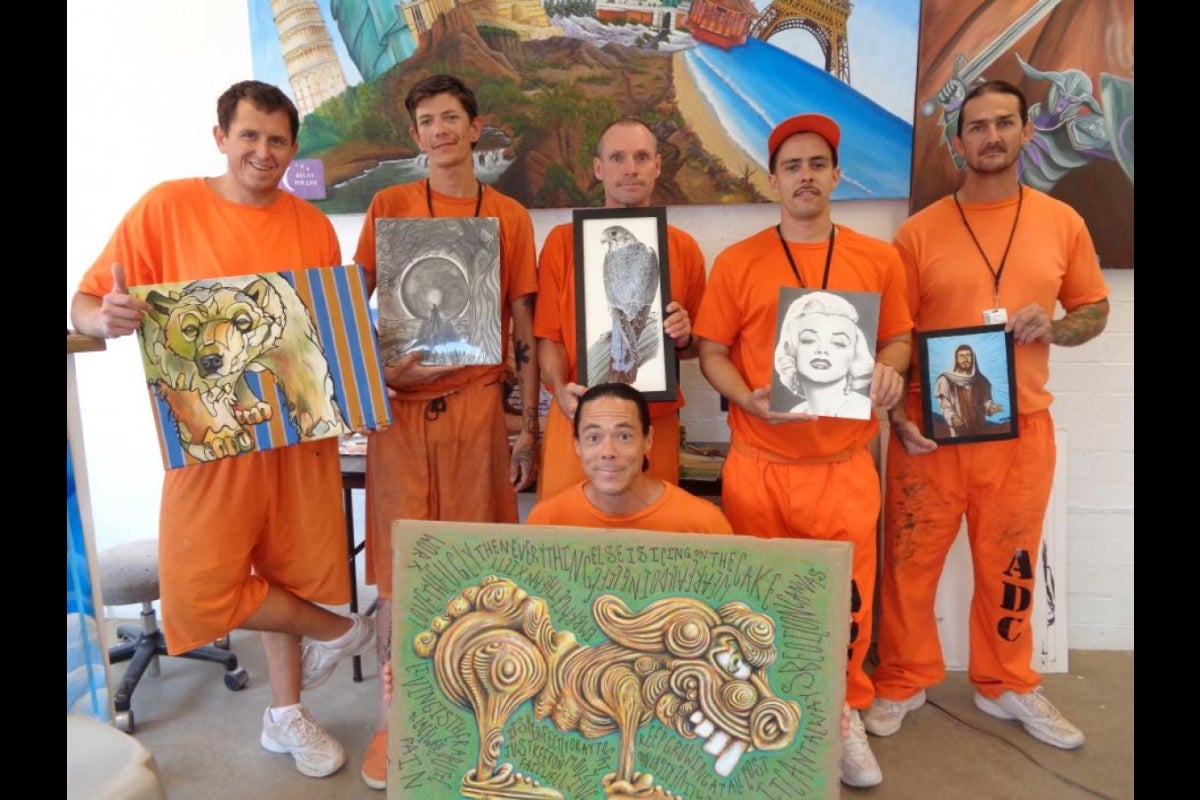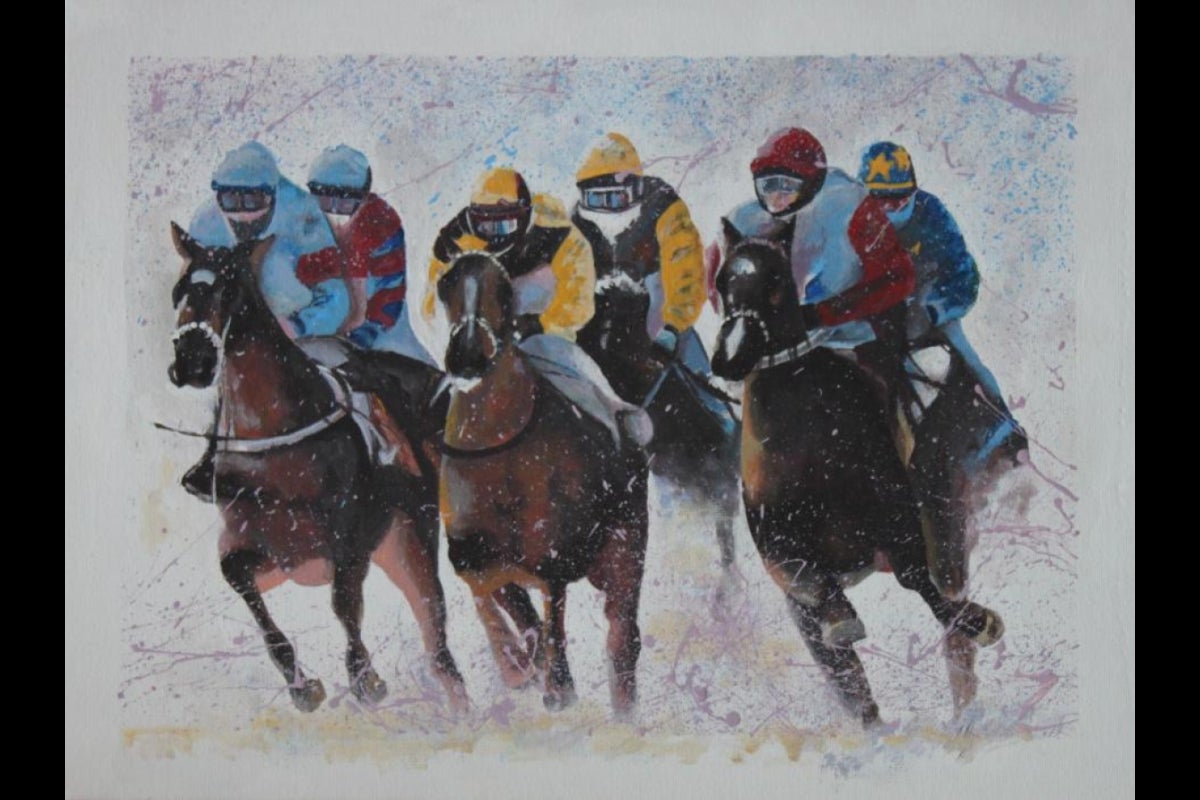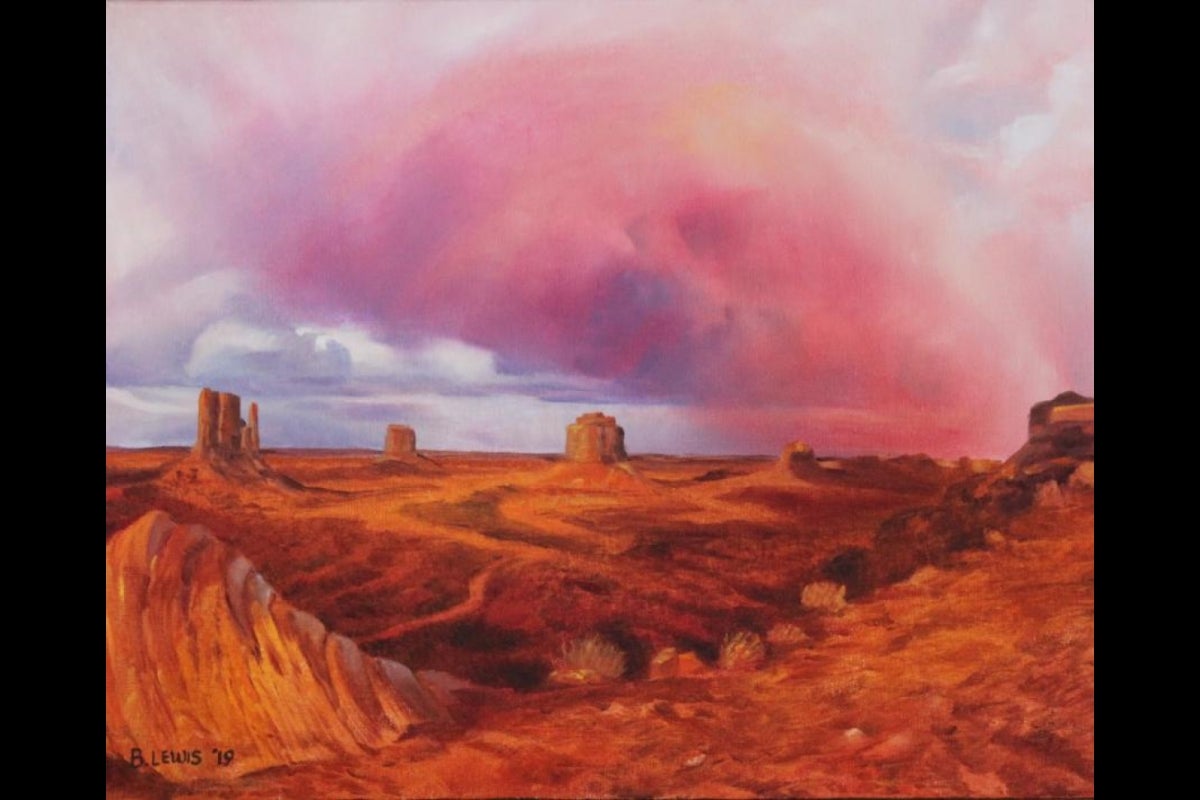ASU students organize art show to connect prison inmates to community

Even as they are separated from their communities, the men who are incarcerated at the Arizona State Prison Complex in Florence are finding a way to give back, with help from Arizona State University.
Two ASU students have organized a gallery show of art made by the men, and sales will benefit a nonprofit that provides art therapy to traumatized children.
“Inkcarcerated: Creativity Within Confinement” will be held from 6 to 10 p.m. Friday, Aug. 2, at the A.E. England Building at ASU’s Downtown Phoenix campus.
The students, Genevieve McKenzie, a senior majoring in criminology and psychology, and Caitlin Matekel, a PhD student in criminology, created the show through their work with the Center for Correctional Solutions in the Watts College of Public Service and Community Solutions.
The event is meant to connect the men to the communities they will eventually be returning to, Matekel said.
“It’s bridging that gap between corrections, which is so hidden, and the community that they’re eventually going home to. How do we connect those two groups?” Matekel said.
This is the second art show of its kind organized by ASU students. Two years ago, McKenzie was in a project-based learning course that spent two semesters exploring incarceration.
“We spent the first semester learning about what goes into recidivism and the reentry process and the challenges that people face when they’re leaving prison,” said McKenzie, who toured a prison and reentry center and interviewed formerly incarcerated people as part of the class.
“In the spring semester, we focused on how to address it, so we planned this art show.”
The students sold all of the art and donated the money to charity — an experience that was so successful, she wanted to try it again.
Over the past several months, McKenzie and Matekel organized donations of canvases, canvas panels, pads of paper, pencils, brushes and paints to the men in Florence, many of whom attend organized art classes. Others pursue art as a personal hobby.
More than 200 works of art will be in the show, and proceeds will go to Free Arts for Abused Children of Arizona, an organization that provides programs for children who have experienced family trauma, homelessness and violence. The artworks, including paintings and drawings, will be priced at about $30 and up.
The show is among the projects being done by the Center for Correctional Solutions, which is directed by Kevin Wright, an associate professor in the School of Criminology and Criminal Justice.
“The center is more interested in working with people rather than on them. We don’t want to do research on them, we want to do it alongside them," Matekel said.
McKenzie is involved in a project in partnership with the Arizona Department of Economic Security to create a new employment program for women incarcerated at the Arizona State Prison Complex in Perryville.
“We interviewed around 200 women, asking about programming and the types of jobs they have had or would be interested in having.
“Now we’re working with our advisory board to create entrepreneurship training — how someone can start a career with all these restrictions placed on them and still thrive, with a focus on the power skills that go into being your own boss,” she said.
The center also developed the Inside Out Prison Exchange Program, in which ASU students travel to a prison to learn about crime and justice alongside incarcerated people. This fall, that program will be held at the women’s facility in Perryville for the first time.
The work of the center is intended to make incarceration more transparent to the public, Matekel said.
“It’s a way to communicate and have people care about this, because these people are coming home. They matter.”
Top photo: The “Inkcarcerated: Creativity Within Confinement” art show will include more than 200 artworks produced by men incarcerated in the Arizona State Prison Complex in Florence. Photo courtesy of the Arizona Department of Corrections


